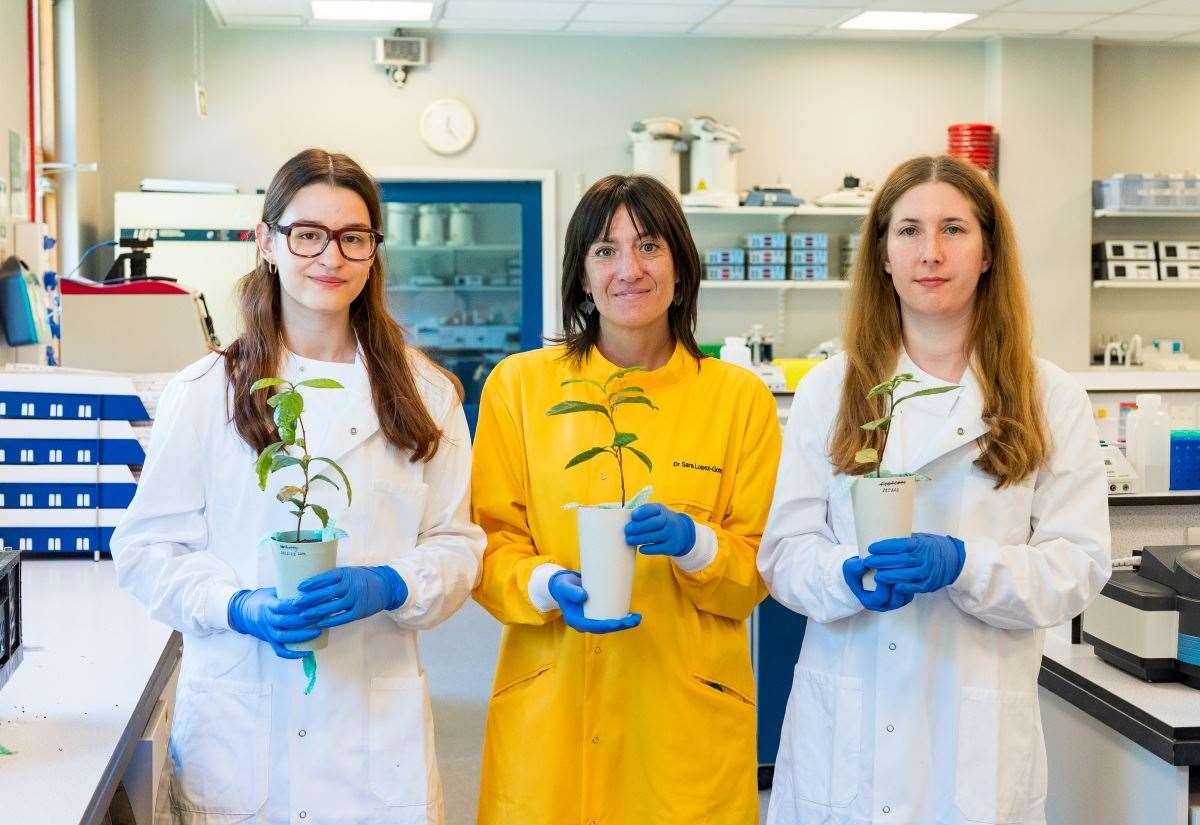The humble cuppa could be on the menu for astronauts after scientists in Kent found tea plants can grow in lunar conditions.
The experiment saw researchers at the University of Kent plant Dartmoor Tea saplings in simulated conditions found on the Moon and Mars.
Left to right, University of Kent scientists Anna-Maria Wirth, Dr Sara Lopez-Gomollon and Florence Grant. Picture: Chris Wenham
As well as using soil types replicated from the extraterrestrial bodies the teams also controlled light, heat and humidity conditions to those in space.
Researchers found tea plants in lunar soil flourished, taking root and growing as strongly as those planted in Devon soil.
By contrast, saplings in Martian soil failed to grow at all.
The work – led by Professor Nigel Mason and Dr Sara Lopez-Gomollon – is being presented this week at Europe’s first space agriculture workshop in Bratislava, Slovakia.
The Kent team says its findings suggest astronauts could one day grow tea in lunar greenhouses, giving future Moon settlers access to fresh food and perhaps even a “cuppa” in space.
Professor Mason said: “We’re moving into a new age of space, where we think about settling in space and building bases on the Moon or Mars.
The University of Kent team says its findings suggest astronauts could one day grow tea in lunar greenhouses. Picture: Chris Wenham
“These experiments reveal that terrestrial plants such as tea may be cultivated in lunar soils within lunar greenhouses, allowing inhabitants of such bases some degree of autonomy and access to fresh food.”
While the project was designed with space exploration in mind, the researchers say it also has relevance back on Earth.
Lessons learned about how crops survive in poor soils could help farmers facing challenges caused by climate change and over-farming.
Dr Lopez-Gomollon added: “The results are very encouraging, as they demonstrate that tea can be grown in lunar soils.
“Our next step is to better understand the physiology of the plant so we can improve growth and ideally translate these findings to other crops.”

